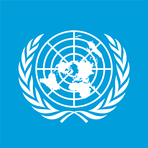The Escalating Storm: A Region on Edge
September 29, 2024, 3:39 am

Location: United States, District of Columbia, Washington
Employees: 10001+
Founded date: 2000

Location: United States, New York
Employees: 10001+
Founded date: 2002
Total raised: $500M
The Middle East is a powder keg, and recent events have lit the fuse. Yemen's Houthi militants, aligned with Iran, have launched attacks against Israel and U.S. naval forces. This is not just a local skirmish; it’s a ripple in a vast ocean of conflict. The Houthis claim their strikes are in solidarity with Gaza and Lebanon, where violence has surged. The Israeli military, on high alert, intercepted missiles aimed at its cities. The sirens blared, a warning of the storm brewing on the horizon.
The backdrop is grim. Over 600 lives have been lost in Lebanon due to Israeli airstrikes, the highest toll in nearly two decades. Hezbollah, the Iranian-backed group, has been firing rockets into Israel for almost a year. This is a chess game with deadly stakes, where each move could lead to an all-out war.
On the world stage, Israeli Prime Minister Benjamin Netanyahu stood before the United Nations, a lion roaring in a den of sheep. He condemned Iran, calling it the puppet master behind the chaos. His message was clear: Israel will not back down. The country has been under siege, and enough is enough. The rhetoric was fierce, painting Israel as a defender of civilization against barbarism. The audience was divided; some cheered, while others walked out, a stark reminder of the polarized views on this conflict.
Netanyahu's speech was a call to arms. He declared that Israel is fighting on multiple fronts, including against Hamas in Gaza. The Israeli military continues its campaign, targeting Hezbollah in southern Lebanon. The Prime Minister insisted that the only path to peace is through victory. His words echoed like thunder, but the reality on the ground is more complex.
In Gaza, the situation is dire. The humanitarian crisis deepens as Israeli strikes continue. The death toll has surpassed 41,000, according to Palestinian health authorities. Families are torn apart, homes reduced to rubble. The war began with a brutal attack by Hamas on October 7, where over 1,200 Israelis were killed. The aftermath has been catastrophic, with nearly all of Gaza's 2.3 million residents displaced. Hunger and disease are rampant, painting a bleak picture of survival.
The international community watches with bated breath. Calls for a ceasefire grow louder, but the path to peace is littered with obstacles. Netanyahu’s insistence on total victory leaves little room for negotiation. The U.S. has warned that further escalation will only complicate the return of civilians to their homes. Yet, the Israeli Prime Minister remains resolute, vowing to degrade Hezbollah until all objectives are met.
Iran looms large in this narrative. Netanyahu’s speech called for a return to sanctions against Iran, aiming to curb its nuclear ambitions. The specter of a nuclear-armed Iran is a nightmare for Israel and its allies. The Prime Minister's words were a warning shot, a reminder that the long arm of Israel can reach Tehran. The stakes are high, and the clock is ticking.
As the conflict escalates, the implications stretch beyond the Middle East. Global powers are drawn into the fray, each with their own interests. The U.S. has a vested interest in stabilizing the region, but its support for Israel complicates its relationships with Arab nations. The balance of power is delicate, and any misstep could ignite a wider conflict.
The Houthis’ involvement adds another layer to this already tangled web. Their missile strikes against Israel and U.S. destroyers signal a shift in the dynamics of the conflict. This is not just a battle for territory; it’s a struggle for influence. Iran’s support for the Houthis is a testament to its strategy of encircling Israel with hostile forces. The Houthis are a pawn in a larger game, but their actions could have far-reaching consequences.
The region is a chessboard, and every move counts. The players are entrenched, each with their own agenda. The cries for peace are drowned out by the sounds of war. Diplomats scramble to find a solution, but the path is fraught with challenges. The rhetoric is fierce, but the reality is even harsher.
As the dust settles, the question remains: can peace be achieved in a land so steeped in conflict? The answer is elusive. The cycle of violence continues, and the toll on human life is staggering. The world watches, but the people of the region bear the brunt of the storm. The future is uncertain, and the stakes have never been higher.
In this volatile landscape, hope flickers like a candle in the wind. It’s fragile, but it exists. The call for peace must rise above the din of war. Only then can the region begin to heal. The storm may rage on, but the desire for peace is a powerful force. It’s time for the world to listen.
The backdrop is grim. Over 600 lives have been lost in Lebanon due to Israeli airstrikes, the highest toll in nearly two decades. Hezbollah, the Iranian-backed group, has been firing rockets into Israel for almost a year. This is a chess game with deadly stakes, where each move could lead to an all-out war.
On the world stage, Israeli Prime Minister Benjamin Netanyahu stood before the United Nations, a lion roaring in a den of sheep. He condemned Iran, calling it the puppet master behind the chaos. His message was clear: Israel will not back down. The country has been under siege, and enough is enough. The rhetoric was fierce, painting Israel as a defender of civilization against barbarism. The audience was divided; some cheered, while others walked out, a stark reminder of the polarized views on this conflict.
Netanyahu's speech was a call to arms. He declared that Israel is fighting on multiple fronts, including against Hamas in Gaza. The Israeli military continues its campaign, targeting Hezbollah in southern Lebanon. The Prime Minister insisted that the only path to peace is through victory. His words echoed like thunder, but the reality on the ground is more complex.
In Gaza, the situation is dire. The humanitarian crisis deepens as Israeli strikes continue. The death toll has surpassed 41,000, according to Palestinian health authorities. Families are torn apart, homes reduced to rubble. The war began with a brutal attack by Hamas on October 7, where over 1,200 Israelis were killed. The aftermath has been catastrophic, with nearly all of Gaza's 2.3 million residents displaced. Hunger and disease are rampant, painting a bleak picture of survival.
The international community watches with bated breath. Calls for a ceasefire grow louder, but the path to peace is littered with obstacles. Netanyahu’s insistence on total victory leaves little room for negotiation. The U.S. has warned that further escalation will only complicate the return of civilians to their homes. Yet, the Israeli Prime Minister remains resolute, vowing to degrade Hezbollah until all objectives are met.
Iran looms large in this narrative. Netanyahu’s speech called for a return to sanctions against Iran, aiming to curb its nuclear ambitions. The specter of a nuclear-armed Iran is a nightmare for Israel and its allies. The Prime Minister's words were a warning shot, a reminder that the long arm of Israel can reach Tehran. The stakes are high, and the clock is ticking.
As the conflict escalates, the implications stretch beyond the Middle East. Global powers are drawn into the fray, each with their own interests. The U.S. has a vested interest in stabilizing the region, but its support for Israel complicates its relationships with Arab nations. The balance of power is delicate, and any misstep could ignite a wider conflict.
The Houthis’ involvement adds another layer to this already tangled web. Their missile strikes against Israel and U.S. destroyers signal a shift in the dynamics of the conflict. This is not just a battle for territory; it’s a struggle for influence. Iran’s support for the Houthis is a testament to its strategy of encircling Israel with hostile forces. The Houthis are a pawn in a larger game, but their actions could have far-reaching consequences.
The region is a chessboard, and every move counts. The players are entrenched, each with their own agenda. The cries for peace are drowned out by the sounds of war. Diplomats scramble to find a solution, but the path is fraught with challenges. The rhetoric is fierce, but the reality is even harsher.
As the dust settles, the question remains: can peace be achieved in a land so steeped in conflict? The answer is elusive. The cycle of violence continues, and the toll on human life is staggering. The world watches, but the people of the region bear the brunt of the storm. The future is uncertain, and the stakes have never been higher.
In this volatile landscape, hope flickers like a candle in the wind. It’s fragile, but it exists. The call for peace must rise above the din of war. Only then can the region begin to heal. The storm may rage on, but the desire for peace is a powerful force. It’s time for the world to listen.